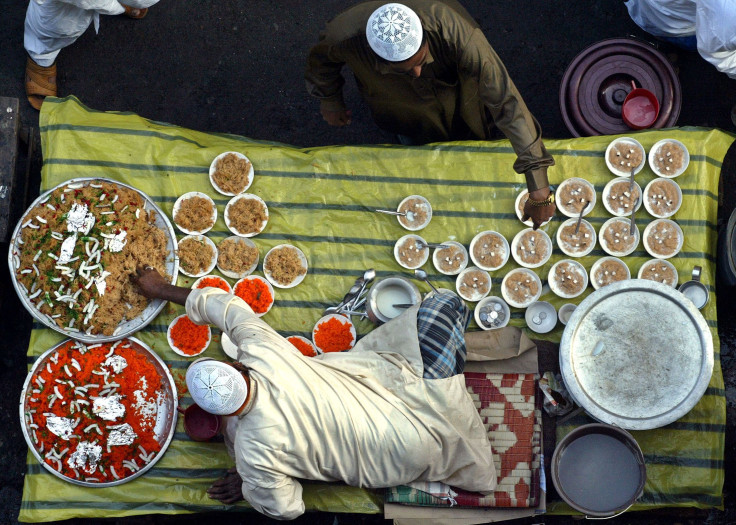
As Ramadan begins Friday, May 26, at the sighting of the moon, most muslims will assume a religious fasting schedule starting at dawn. What are the Ramadan fasting rules? Why do Muslims fast? How can non-Muslims participate? We won’t go into detail on what Muslims eat during Ramadan, which are usually traditional dishes especially those that include dates. There aren’t many restrictions on what to eat so much as when to eat. Ramadan occurs 11 days earlier each year, cycling through Gregorian (modern, Western) calendar over time. As you’ll see below, the astronomy and geography of Ramadan varies; Muslims have to fast longer depending on where they live and what time of year it is.
What are the Ramadan fasting rules?
The most basic tenant of the Ramadan fast is not eating or drinking (even water) between dawn and evening, according to local sunrise and sunset times. Landing in early summer, Ramadan 2017 will involve long fasts for American and other Muslims in the Northern Hemisphere. Near the Arctic Circle, for example, the fast will last around 22 hours. In Australia, in the Southern Hemisphere, the fast will last around 12 hours. Some Muslim-majority countries ban eating and drinking in public for all residents, even non-muslims and most restaurants are closed during daylight hours.
Daytime fasting during Ramadan has an ascetic quality. Muslims basically go about their normal routine, including work school and social functions. However, observers of Ramadan are expected to “abstain from food, drink and other sensual pleasures,” according to the Council on Islamic American Relations (CAIR). Sensual pleasures include sexual intercourse. Some say that kissing is okay. While already banned or discouraged in Islam, extramarital sex, smoking and drinking are even more discouraged during Ramadan. Minor indulgences such as lying require a small penance. Major offenses -- day sex, eating, drinking -- require a major penance such as additional fasting or feeding poor people.
Fasting is only required for people who are physically able to do so. The elderly, sick and mentally ill are all exempt. Pregnant, nursing and menstruating women are also exempt from fasting rules.
Why do Muslims fast?
While some Ramadan rules are detailed in the Hadith (accounts of the prophet Muhammad's life), the main gist can be found in the Qur’an.
“O you who believe! Fasting is prescribed for you as it was prescribed for those before you, that you may attain Taqwa [God-consciousness]. – The Qur’an, Al-Baqarah:183
“The fast is performed to learn discipline, self-restraint and generosity, while obeying God’s commandments,” according to CAIR. Like Catholics who fast for Lent, Muslims fast to get closer to God. Unlike Jewish fasting for Yom Kippur, Ramadan isn’t so much about atonement. Fasting is one of the five pillars of Islam, after (1) monotheism (2) daily prayer (3) charity and before (5) pilgrimage to Mecca. In many Muslim families, Ramadan is a time of togetherness, like the shared worship of a Christmas mass or the shared cooking and facetime of Thanksgiving.
How can non-muslims participate?
Some non-muslims participate in fasting, especially if they live in a muslim country or have lots of Muslim friends. In Western countries where food and drink are flowing through the day during Ramadan throughout the day right under their hungry and thirsty mouths, non-muslims can support their muslim friends by not eating or drinking in front of them. Non-muslims are also often invited to Ramadan feasts. Ramadan isn’t all about abstinence. Post-sunset dinners during Ramadan can be decadent feasts. Called “iftar,” the fast-breaking meal is open to non-muslims. CAIR has urges local Muslim leaders to hold interfaith iftars and have put out a guide on how to do so.
© 2024 Latin Times. All rights reserved. Do not reproduce without permission.